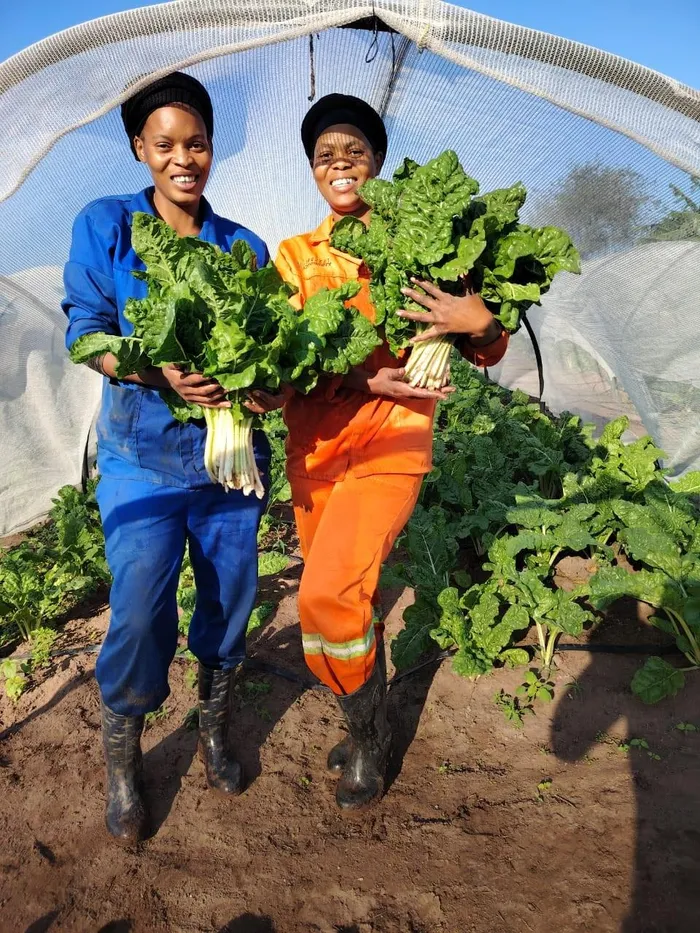What US tariff moves could mean for SA farmers
While the headlines focus on big exporters, the longer-term impact may hit smallholder farmers the hardest

As the US reconsiders its trade terms with South Africa, experts warn that smallholder farmers could pay the highest price
Image: Supplied
South Africa’s agricultural sector is no stranger to external shocks – but its future may hinge on decisions made thousands of kilometres away. With recent tariff moves by the United States, alongside growing uncertainty over South Africa’s continued participation in the African Growth and Opportunity Act (AGOA), producers are bracing for potential fallout that could reshape not only export earnings, but the country’s broader economy.
AGOA has long been a strategic advantage for local exporters, allowing duty-free access for agricultural products like citrus, avocados, nuts and wine. But with the US’s recent imposition of a 10% blanket tariff on all goods – and a looming 30% tariff – that advantage is at risk. While the headlines focus on big exporters, the longer-term impact may hit smallholder farmers the hardest.
Momentum’s Youth Employment Portfolio Head, Nkosinathi Mahlangu,, is concerned about how the shifting trade landscape could unravel years of hard-won inclusion in the agricultural sector.
“The potential exclusion of South Africa takes away the duty-free access that we enjoy when we export produce and products to the US. This is one of the many setbacks that we are likely to suffer,” said Mahlangu.
“SA agriculture has been supplying products like citrus fruits, nuts and avocados to the US market easily through AGOA. The potential exclusion would mean farmers need to break into new markets and compete with already existing players in the space, which will affect pricing and shipping costs, and play catch-up with competitors. Potential job losses could be on the cards, as a result.”
While AGOA uncertainty creates ripple effects for established exporters, the tremors are even more destabilising for farmers trying to break into commercial supply chains for the first time. Many of these producers are based in rural areas, often women-led, and are still building the infrastructure, networks and scale needed to succeed.
“Corporate South Africa can play a role by facilitating market access for smallholder farmers through procurement commitments such as sourcing a percentage of fresh produce from smallholder farmers, Mahlangu noted. “Capacity building interventions could help farmers with training and support needed when it comes to industry compliance, safety and quality required by local and global markets.”
According to agricultural specialist and mentor Allen Mkondwa, trade shifts like these will inevitably affect logistics, cost structures and timelines, especially for emerging farmers. Some smallholder producers already find it difficult to secure sufficient volumes and navigate cold chain requirements. If the export equation becomes more complex or costly, they risk falling even further behind.
Mkondwa stresses that tariff changes don’t just impact revenue, they disrupt long-term planning, which is crucial for sustainable farming. Producers at this level are often operating season to season. Without predictable access to markets, years of capacity building can be undone.
He believes that targeted investment in infrastructure, particularly packhouses, cold rooms and transport networks, will be vital in helping small-scale farmers weather trade disruptions. These are the same bottlenecks that have limited rural farmers for decades. Without addressing them, inclusive growth remains out of reach.
This is where value chain control becomes critical, says Ma Joye, small-scale farmer and founder of Umgibe Farming Organics in KwaZulu-Natal. She advocates for smallholders to take greater ownership over the entire chain – from seed to shelf – through practices like seed banking, localised crop processing and sustainable production methods. This helps build self-reliance, improve profit margins and reduce exposure to global shocks.
Mahlangu agrees that long-term inclusion requires more than just short-term fixes. “Policy interventions should be intentional about rural development, economic inclusion and the elephant in the room that is access to land and land reform. The country needs to accelerate land redistribution programmes to give smallholder farmers an opportunity to access land. Access to funding is another challenge faced by smallholder farmers and this could be remedied through tailored grants and subsidies from the Department of Agriculture and the financial services sector.”
As the AGOA conversation continues, both Mahlangu and Mkondwa agree: protecting South Africa’s agri-sector isn’t just about trade negotiations. It’s about building a system that is resilient, inclusive and prepared for whatever comes next.